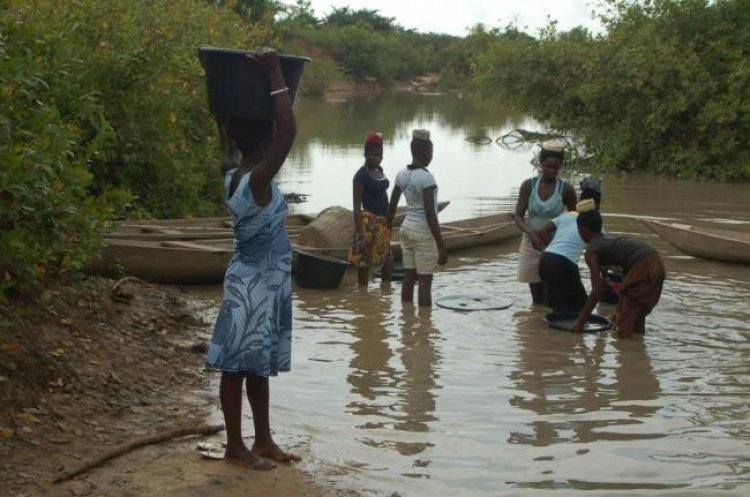Atebubu/Amantin Dagomba Chief complains about lack of water
The Dagomba chief in the Atebubu Amantin Municipality of the Bono East Region says the situation is compelling residents to drink from unsafe streams and other sources of water.

The Dagomba chief in the Atebubu Amantin Municipality of the Bono East Region, Nana Abdullah Salifu is calling on the government to provide them with potable water in the area.
Addressing a press conference on Monday, July 25, 2021, Nana Abdullah Salifu stated that, the unavailability of treated water in their areas has been a major issue, compelling residents to drink from unsafe streams and other sources of water.
He expressed worry over how people in this 21st central will be depending on streams for water when something can be done. He is therefore appealing to the government to put in contingency measures to mitigate the problem.
Ensuring the long-term sustainability of water and sanitation infrastructure interventions has long been a challenge in rural communities in Ghana.
For years, significant investments in water and sanitation infrastructure have rarely translated to sustained access and use of services and achievement of improved health outcomes. Approximately 25 per cent of the water and sanitation infrastructure established in Ghana becomes non-operational after just five years, and a large percentage of the remaining facilities are either underutilized or diverted for other purposes.
Organizations working in water, sanitation and hygiene are challenged by community initiatives in addressing issues – rather than taking the initiative to address their own problems, many communities instead wait for a government agency or NGO to provide them with services.
However, The Ghana WASH Project was introduced to improve rural and peri-urban communities in the areas of water, sanitation and hygiene by linking up with communities, local NGOs, government agencies, as well as international organizations working in the sector.
Through a multi-level approach, the project worked to build the capacity of local communities and organizations, and not only improve water, sanitation and hygiene, but also empowered these actors to continue promoting development well after the project has reached completion.
But it seems the country is still lacking behind after the introduction of the WASH project.


 Nana Ama Asiedu Francisca
Nana Ama Asiedu Francisca 



































